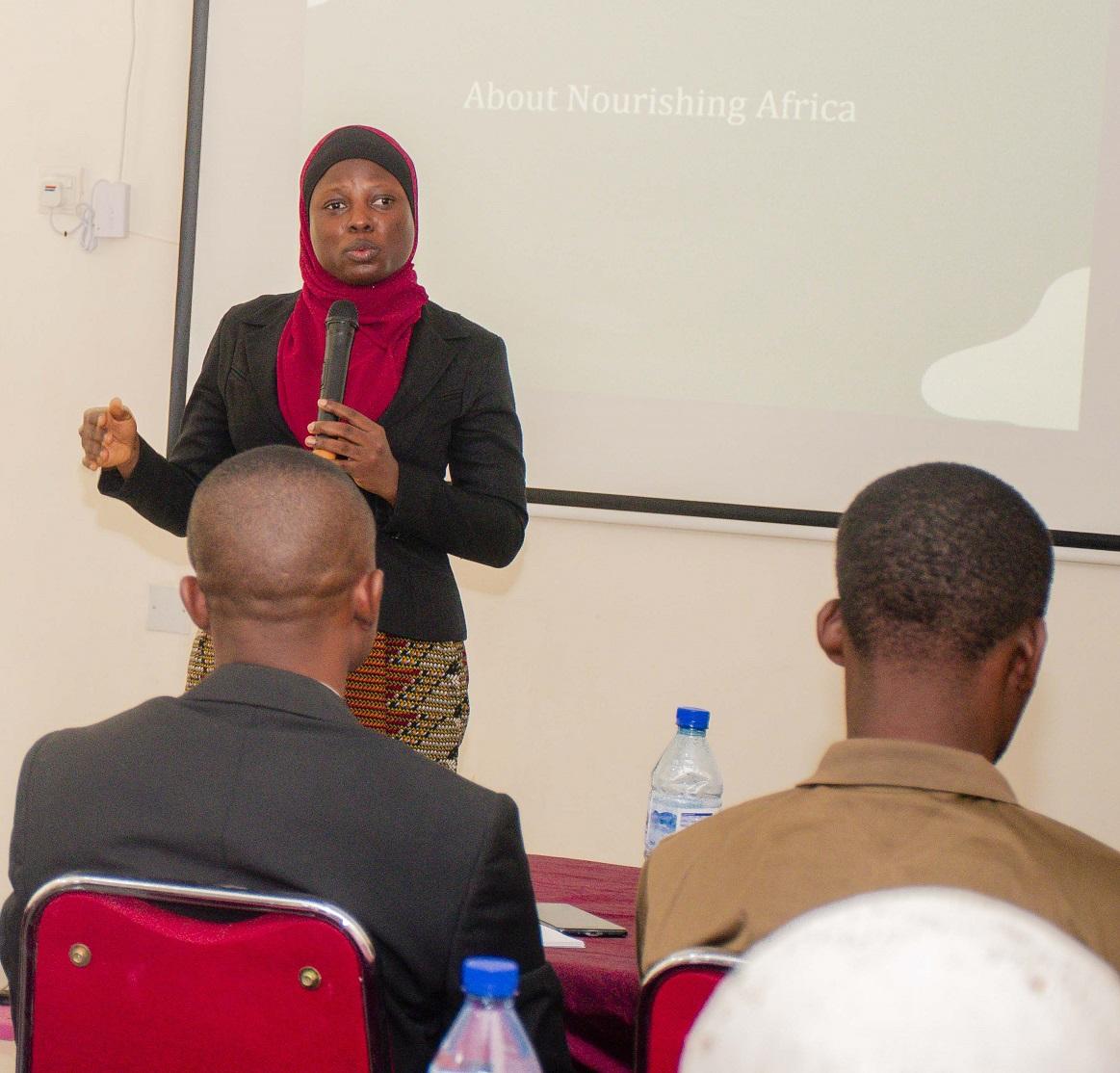Partnerships and collaboration are key for expanding and scaling up inclusive business models so innovative entrepreneurs can continue to make a difference.
A strong enabling environment and support system allows inclusive business founders to learn from peers who have faced similar struggles and to grow.
Inclusive businesses can support a just transition to a more sustainable and inclusive future.
Inclusive businesses are facing challenges including inflationary pressures and climate change, yet these can also present new opportunities to innovate.
Inclusive Business has an important role to play in addressing many of the major challenges of our times, with the support and collaboration of an evolving global ecosystem of partners and changemakers.

Inclusive businesses need a supportive environment to grow.
Partnerships and collaboration are key for expanding and scaling up inclusive business models so innovative entrepreneurs can continue to make a difference. iBAN has worked closely with partners who continue to do this important work around the world; we have asked them to share their views about the direction Inclusive Business will take in this final issue of CLUED-iN. For example, United Nations ESCAP is partnering with the Bill and Melinda Gates Foundation to support Inclusive Business Models in Agriculture and Food Systems in India, Thailand and Viet Nam. Marta Pérez Cusó of UNESCAP believes that supportive measures will continue to grow in the future: “We will also see the development of a greater enabling environment at the national level, and beyond, to promote inclusive businesses. For instance, many ASEAN Governments are now putting in place strategies and programmes to promote inclusive business.” A strong enabling environment and support system allows inclusive business founders to learn from peers who have faced similar struggles and to grow.

Inclusive Business is growing in ASEAN.
The process of writing the feature story for CLUED-iN and interviewing entrepreneurs and experts each month has allowed me to see how many solutions can be found on the local level that address global issues such as food security, inclusive healthcare and climate change. It was fascinating to discover how entrepreneurs are using technology and data to further their reach and solve challenges, especially during the Covid-19 pandemic. For example, we spoke to Moses Kimani from Lentera Africa for our Inclusive Data issue of CLUED-iN and learned how they use real-time satellite and weather data to help farmers adapt to climate change through crop specific advice regarding fertilizer, pests and water management. This helps farmers adapt their agronomy practices in line with changing climate patterns.
Filipe Di Matteo from Agribusiness Market Ecosystem Alliance (AMEA), a global network supporting farmer organizations, tells us, “I also believe that data and new technologies will play an ever increasing role in inclusive business. There is so much data out there waiting to be organized into inputs and information for action. We need to harness this information, improve our knowledge about inclusive business and the populations for which these businesses are supposed to bring benefits, and act upon the opportunities that arise.”
Inclusive Business can help create a green transition.
Inclusive businesses can support a just transition to a more sustainable and inclusive future. Going forward, Dr. Stuart Hart explains that global demographic changes will require wholesale transformation over the next decade to solve pressing challenges. What does this mean for inclusive business? “For business and inclusive business entrepreneurs, this transformation means focusing on sustainability-driven purpose, inclusion-driven strategy, and a commitment to larger system change,” he argues.
“For inclusive business to be sustainable and leave no one behind, it will be critical to pay greater attention to how these enterprises are supporting environmental sustainability and women’s empowerment,” Pérez Cusó advises.
Inclusive businesses are facing challenges including inflationary pressures and climate change, yet these can also present new opportunities to innovate. “Climate change may also necessitate inclusive businesses having to make adaptations to accommodate the effects and ensure their operations remain eco-friendly and sustainable,” says Oladunmade Otitoola of African Food Changemakers. “This may range from altering their business models to better involve the use of climate-smart technologies to leveraging carbon credits and green finance.”
“Given the complex nature of poverty and the systemic barriers people face, our view is that we need to collaborate across business, government and civil society with a new sense of urgency and purpose,” writes Zahid Torres-Rahman, CEO of Business Fights Poverty in his article, Facing The Poverty Tsunami: How Business Can Support the Lives, Livelihoods and Access to Learning of the Most Vulnerable People and Communities. Inclusive business has an important role to play in addressing many of the major challenges of our times, with the support and collaboration of an evolving global ecosystem of partners and changemakers.

Inclusive Business can help address the major challenges of our times.
- Slider: © GIZ/Thomas Imo (planting), © African Food Changemakers (presenter), © GIZ/Ute Grabowsky (solar panel)
- African Farmer: "Planting Corn" by Rod Waddington is licensed under CC BY-SA 2.0.
- Asian farmer planting tree: © GIZ/Ranak Martin
- Solar panels: © GIZ
- Laughing women: © GIZ/Michael Tsegaye



